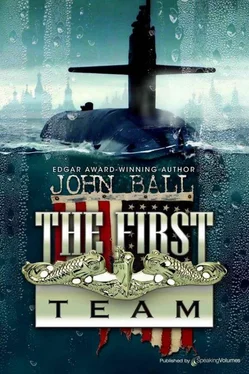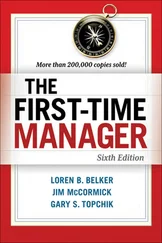Джон Болл - The First Team
Здесь есть возможность читать онлайн «Джон Болл - The First Team» весь текст электронной книги совершенно бесплатно (целиком полную версию без сокращений). В некоторых случаях можно слушать аудио, скачать через торрент в формате fb2 и присутствует краткое содержание. Год выпуска: 2013, Жанр: Триллер, на английском языке. Описание произведения, (предисловие) а так же отзывы посетителей доступны на портале библиотеки ЛибКат.
- Название:The First Team
- Автор:
- Жанр:
- Год:2013
- ISBN:нет данных
- Рейтинг книги:5 / 5. Голосов: 1
-
Избранное:Добавить в избранное
- Отзывы:
-
Ваша оценка:
- 100
- 1
- 2
- 3
- 4
- 5
The First Team: краткое содержание, описание и аннотация
Предлагаем к чтению аннотацию, описание, краткое содержание или предисловие (зависит от того, что написал сам автор книги «The First Team»). Если вы не нашли необходимую информацию о книге — напишите в комментариях, мы постараемся отыскать её.
Student protesters are being slaughtered in the Midwest.
The Jewish pogroms have begun.
You are now living in Soviet — occupied America!
One nuclear submarine and a handful of determined patriots against the combined might of Russia and Soviet-occupied America… The Most Explosive and Gripping “What If” Novel of Our Time!
First published January 1971
The First Team — читать онлайн бесплатно полную книгу (весь текст) целиком
Ниже представлен текст книги, разбитый по страницам. Система сохранения места последней прочитанной страницы, позволяет с удобством читать онлайн бесплатно книгу «The First Team», без необходимости каждый раз заново искать на чём Вы остановились. Поставьте закладку, и сможете в любой момент перейти на страницу, на которой закончили чтение.
Интервал:
Закладка:
“Can we do it in such a way that if it gets shot down, the whole show won’t be compromised?” the circus performer asked.
“Yes,” Haymarket answered.
“I’ll buy it,” the Marine major said. He ran the fingers of his remaining hand through his closely cropped hair as though the sitting still irked him.
Admiral Haymarket looked around the table, but no one else had a comment or a question. “Then I take it that for the present, at least, we are in agreement. Let’s get the machinery going, because it’s going to take a while and it will be as tricky as all get out.”
The industrialist nodded, a solemn bean pole of a man in contrast to the very muscular circus performer who sat next to him. “Those things can’t be rushed,” he agreed.
The admiral had one more thing to say. “In any kind of warfare you have to expect casualties; we’ve had a bad loss right at the beginning. Bob Landers, whom some of you knew, I’m sure, was spotted, interrogated, and then shot on the White House lawn. The best information I can get indicates that he didn’t talk, but even if he did he couldn’t have blown more than his own immediate local contacts. We’ve been watching them and so far they seem to be all right — although it could be a cat-and-mouse game to draw us in. I’ve had a contact made. There was an element of risk, but I was banking on Landers as I knew him. The White House is very important to us if we can establish a reliable listening post on the inside.”
“How was Landers found out?” the high diver asked.
“I don’t know yet,” Haymarket answered. “One of my best people is looking into it. I just hope that no anxious amateurs get in his way.”
Senator Solomon Fitzhugh sat alone in the solemn quiet of his office, long after everyone else had gone, struggling with his inner conscience and a heavy secret with which he was burdened. Despite the fact that it was decidedly painful to him, he was carefully retracing in his mind the events which, when strung out like crows sitting on a fence, had conspired to put him in his present dilemma. The starting point, he knew, lay in his own character and convictions. There were certain things in which he believed so implicitly that he had never had cause to question them before; foremost among these was the unshakable belief that war is hell. He held this so deeply that it had overshadowed and influenced his entire legislative career. If he could keep the nation out of armed conflict, no matter what the price, he was going to do it. If human life was beyond all value, then the preserving of large amounts of it would be of incalculable worth. “Blessed are the peacemakers, for they shall inherit the earth.”
There was one possible excuse for warfare, and that was when you were actually invaded and had to fight on your own soil to defend your own womenfolk and children. However, the simple fact was that if everyone followed the same principles that he did, there would be no invasions and no one would ever have to fight to defend his homeland.
His mind would not let him evade the responsibility of what came next; it took him overseas in swift retrospect and to the capital of the nation which had so ruthlessly and shockingly overcome the United States of America. Although his trip had been presumably a private one, and he had been accompanied by his family, it had not been viewed in that light upon his arrival. He had been accorded all of the protocol formality which he might have expected had he been there officially on behalf of the government as the designated representative of the President. He had been taken to see many things, he had been wined and dined, and he had been given a private meeting with the premier himself.
The American embassy had been a little disturbed by that, but the senator had held the firm conviction in his mind that he could talk to any man on earth without fear, for his conscience had been clear.
The private conference with the premier had been in many ways a vindication of the principles upon which he stood. He relived it again now. Once more he was back in the warm informal room. In the middle was the table beautifully set with delicacies and three bottles of the one alcoholic beverage that he genuinely enjoyed. The premier himself was pouring the drinks; as they sat down together, apart from some language difficulties of a very minor sort they might have been two men of goodwill meeting anywhere in the world on a topic of common interest. Although the premier’s command of English was incomplete, he spoke it well enough to make an interpreter unnecessary, a factor which helped to establish an aura of private mutual understanding.
It literally never occurred to the senator that the premises might be equipped with any kind of a listening device or that the words he spoke informally could be fed into a sensitive tape recorder.
The premier raised his glass. “To your visit to our country,” he said.
“Thank you, sir,” the senator responded, “and to the pleasure of being here.”
“In these few private moments which we are having to share with each other,” the premier continued, “there are many things we can to say.”
“I agree, sir,” Fitzhugh said. “But I must remind you that I am only one of one hundred senators, and the Senate itself is far from being the final authority in the legislative process.”
The premier gave him a shrewd look. “What you say, it is true, but the reality — it is different. From the one hundred senators you are one of the most important. You have, what is it…?” “Seniority?”
“Yes, that is the word. We do not use it here. In fact, I will go further: your career, we have watched it for some time. I welcome you now as an important senator. I expect to welcome you before long another way — as the President of the United States.”
Fitzhugh flushed — he could not help it. To every elected official of the government above a certain level that thought of the White House was at times unavoidable. Fitzhugh knew that he lacked the glamor sometimes thought necessary for the big job, but experience and sober counsel, plus his known dedication to keep the nation out of war, could have a tremendous voter appeal in times of stress and trial. “Keep our boys at home,” could well be his campaign slogan. If he were to be called to that highest office, he would serve with unswerving devotion to duty, and there would truly be peace in his time.
The premier drew up a chair and sat down. With the care which befitted the dignity that might come to him, the senator also sat down and prepared to listen and to speak.
All that had followed he could not remember in total detail, only that he had upheld some specific ideas concerning which he had long been on the public record, and in turn the premier had been surprisingly frank about some of the internal matters within his own country. At one point he even had asked Fitzhugh for his advice and appeared to take deep note of the possible solution which had been presented to him. When at last they rose, the premier had made one final remark. “About our talk together I ask that you remember most one thing: there is no conflict between us simply because with different systems we are engaged. You do not desire our territory — we know this, it is elementary. And also you look first at the map of my country and you will then no problem have in believing that we are not desiring yours.”
That had been a totally practical statement, and a delineation of policy which upheld every thesis that the senator had supported for years. He had shaken hands warmly with the premier and they had drunk a final toast together before the private conference was concluded.
From that meeting Fitzhugh had gone home with his last doubts dispelled and a reenforced dedication to the work which lay before him.
Читать дальшеИнтервал:
Закладка:
Похожие книги на «The First Team»
Представляем Вашему вниманию похожие книги на «The First Team» списком для выбора. Мы отобрали схожую по названию и смыслу литературу в надежде предоставить читателям больше вариантов отыскать новые, интересные, ещё непрочитанные произведения.
Обсуждение, отзывы о книге «The First Team» и просто собственные мнения читателей. Оставьте ваши комментарии, напишите, что Вы думаете о произведении, его смысле или главных героях. Укажите что конкретно понравилось, а что нет, и почему Вы так считаете.












